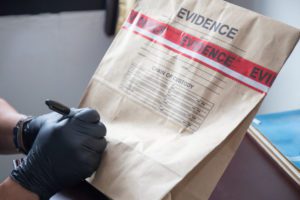 Justice Albin continued in relevant part: Applying the Strickland/Fritz test, the Court finds that Hannah has shown both that counsel’s representation fell below an objective standard of reasonableness and that, to a degree of reasonable probability, the outcome of the trial would have been different but for counsel’s mistakes, which were magnified by mistakes made by the trial court and the prosecutor and perpetuated through various rounds of PCR proceedings. Counsel’s deficiencies deprived Hannah of his constitutional right to present a complete and credible third-party-guilt defense.
Justice Albin continued in relevant part: Applying the Strickland/Fritz test, the Court finds that Hannah has shown both that counsel’s representation fell below an objective standard of reasonableness and that, to a degree of reasonable probability, the outcome of the trial would have been different but for counsel’s mistakes, which were magnified by mistakes made by the trial court and the prosecutor and perpetuated through various rounds of PCR proceedings. Counsel’s deficiencies deprived Hannah of his constitutional right to present a complete and credible third-party-guilt defense.
One important factor in analyzing whether the prejudice from counsel’s ineffective performance denied Hannah a fair trial is the strength of the State’s case; here, the State presented far from overwhelming evidence of Hannah’s guilt. Among other examples, the Court cites LaCue’s credibility issues and the timing discrepancies in the other witnesses’ accounts. The Court also reviews the evidence that Hannah should have been able to introduce to support his version of events — evidence that undoubtedly lay at the heart of his right to present a complete defense and whose admission was necessary to ensure the basic fairness of his trial.
The combined errors in this case constitute a fundamental injustice that denied Hannah a fair trial. But for counsel’s errors — combined with those made by the trial court and prosecutor — there is a reasonable probability that, had the jury heard the withheld evidence, the outcome of the trial would have been different. The issue is not whether the State presented sufficient evidence for the jury to return a guilty verdict, but whether Hannah was denied the opportunity to present a full defense. The passage of time alone cannot bar relief to a defendant deprived of a fair trial. The judgment of the Appellate Division is reversed. Hannah’s judgment of conviction is vacated, and the matter is remanded for a new trial.
Hannah’s decision to testify in his own defense at trial was relatively rare. While jurors are instructed to not use a defendant’s decision to remain silent against them, most jurors probably do so subconsciously since they feel that an innocent person would want to tell their side of the events. While jurors are also instructed that they are to determine if the prosecution proved their case beyond a reasonable doubt as opposed to considering if the defendant was innocent, most jurors are likely to subconsciously disregard this instruction as well.
